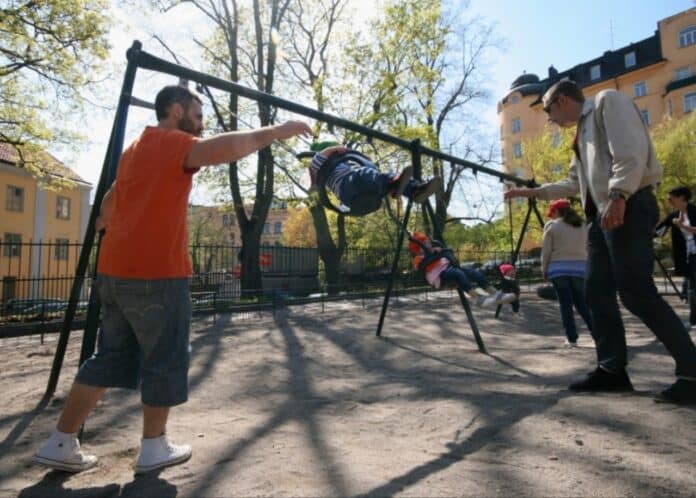Alcohol-related morbidity poses a significant public health concern worldwide. Studies have consistently demonstrated the detrimental effects of excessive alcohol consumption on individuals’ physical and mental health.
While a substantial body of research examines the impact of various factors on alcohol-related morbidity, relatively little attention has been paid to the potential influence of fathers’ parental leave. This study aims to investigate whether taking parental leave can act as a protective factor against alcohol-related morbidity in men, focusing on the context of Sweden.
A study conducted by researchers at Stockholm University‘s Department of Public Health Sciences and published in the journal Addiction has revealed that men who have taken parental leave experience a notable decrease in their likelihood of hospitalization due to alcohol consumption.
The primary objective of this study was to examine the potential impact of fathers’ parental leave on alcohol-related morbidity and mortality. To achieve this, the researchers investigated the consequences of a parental leave policy implemented in Sweden 1995.
This policy aimed to promote paternal involvement by allocating a dedicated 30-day parental leave allowance exclusively for fathers, leading to a notable increase in fathers’ utilization of parental leave from 43 percent to 75 percent.
Helena Honkaniemi, a researcher at the Department of Public Health Sciences, Stockholm University, said, “Our findings were pretty remarkable considering the severity of the studied outcome. Although alcohol-related hospitalizations were uncommon, we found that after the policy was implemented, there was a 34% decrease in these hospitalizations among fathers two years after birth, as well as smaller decreases up to 8 and 18 years after birth.”
“Most changes were found among hospitalizations for alcohol intoxication and alcohol-related mental and behavioral disorders. Additional analyses evaluating actual changes in parental leave use from before to after the policy suggest that these health consequences could be explained by the increase in fathers’ parental leave use rather than other underlying trends”, she added.
Nevertheless, there were no observable alterations in alcohol-related deaths.
Associate Professor Sol Juárez, a co-author of the study, thinks the study’s findings can be valuable for policymakers.
Juárez said, “Policymakers should keep in mind that fathers’ parental leave doesn’t just help achieve gender equality in childcare, but it can also lower alcohol-related problems.”
The study, “Alcohol-related morbidity and mortality by fathers’ parental leave: A quasi-experimental study in Sweden,” uses data from Sweden on fathers with single children born from January 1992 to December 1997, three years before and after the policy change.
This study suggests that fathers’ parental leave might play a role in protecting men against alcohol-related morbidity. As societies evolve and promote shared parenting responsibilities, policies supporting fathers taking extended parental leave may have broader health benefits beyond enhancing family dynamics. Further research and policy initiatives should explore and promote the potential protective effects of fathers’ involvement in caregiving.
Journal reference:
- Helena Honkaniemi, Sol Pía Juárez, Alcohol-related morbidity and mortality by fathers’ parental leave: A quasi-experimental study in Sweden. Addiction. DOI: 10.1111/add.16354.
